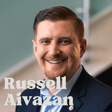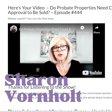
Chris Lockwood, MBA: RV Park & Mobile Home Investor | Military Master Trainer | Project Manager
Chris Lockwood enlisted in the United States Army as a Military Police Officer after graduating from high school in Texas in 1997. While stationed at Fort Leavenworth, Kansas he met and married his wife of 23 years. Chris recently retired from the Army after 24 years on active duty as a First Sergeant. During his military career he earned a master’s degree in Business Administration and found his passion for leading and mentoring Soldiers to become the next generation of leaders.
Chris joined the Active Duty Passive Income family in 2020 as a volunteer to assist with the management of the growing community and help connect members of the community with the resources they needed to reach their financial success. In 2021 after completing a Skillbridge Internship with ADPI, Chris was hired to assist with the development and operations of the Education branch of ADPI.
Chris’ investment experience includes owning and operating Short Term Rentals, Mobile Home and RV Parks, and single family Homes. He is passionate about providing high quality mentorship, coaching and education to members of the military community so that they may have financial freedom once their service to the nation is complete.



















